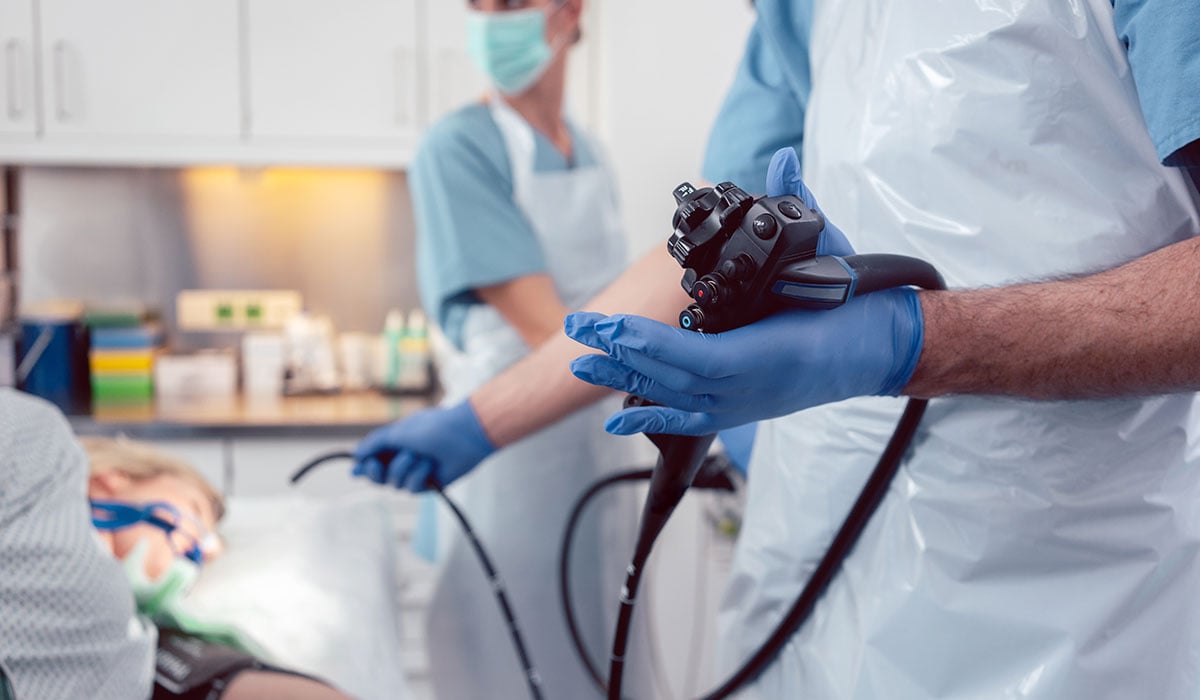Helicobacter pylori, or H. pylori, is a type of bacteria that may infect the stomach lining. It is estimated that much of the world’s population has H. pylori in their system, but not everyone harboring the bacteria will experience symptoms of an associated infection.
H. pylori usually finds its way into the digestive tract during childhood, but can affect adults as well. If H. pylori does infect the stomach lining, it may leave you vulnerable to developing peptic ulcers. It was once assumed these were caused by certain lifestyle factors—stress, spicy foods, and smoking, for example—but further research has revealed that bacteria, specifically, H. pylori, is actually the root of many stomach ulcers.
Those who do not develop ulcers may never realize they have H. pylori infection. When a person does experience symptoms, these are typically side effects of subsequent ulcers, rather than the bacteria.
If you have ulcers, it’s important to find out what is causing them so you can receive proper treatment. If you are experiencing symptoms, your doctor will likely test you for H. pylori. Positive results can be treated with antibiotics. Long-term use of non-steroidal anti-inflammatory drugs may also induce stomach ulcers.
H. Pylori: Frequently Asked Questions
- “How Does H. Pylori Cause Ulcers?”
When damage-causing bacteria infect the stomach lining, these may permeate the lining, causing ulcers that can bleed.
- “Can I Avoid H. Pylori?”
H. pylori is an extremely common form of bacteria infecting many in the world. It may enter your system via food, water, utensils, or saliva and other bodily fluids of those carrying H. pylori. There are no formal recommendations from the U.S. Centers for Disease Control (CDC) to avoid H. pylori. The best way to combat the bacteria is to practice good hygiene, by washing your hands frequently, drinking clean water, and preparing food properly.
“How Do I Know if I Have an Ulcer?”
Ulcers could bleed, which could put you at risk for further health issues. Be sure to schedule a consultation with a gastroenterologist if you experience the following symptoms associated with ulcers:
- Dull or burning stomach pain, especially on an empty stomach
- Bloating
- Loss of appetite
- Nausea
- Vomiting (may have blood or look like coffee grounds if the ulcer is bleeding)
- Unintended weight loss
- Bloody stool, or stool that appears dark red or black
- Fatigue
- Dizziness
- Intense, sharp stomach pain
Testing for H. Pylori
If your doctor suspects H. pylori may be causing your symptoms, several different tests may be conducted for confirmation, including stool analyses or a urea breath test, in which you’ll be asked to drink a liquid containing urea and breathe into a bag.
Think you might have H. pylori?
Gastroenterology Associates specializes in helping restore you and your family to optimal digestive health. We are conveniently located adjacent to Long Island Center for Digestive Health (LICDH), a non-hospital outpatient facility committed to providing high-quality endoscopic and colonoscopic services. Schedule your consultation, today.












